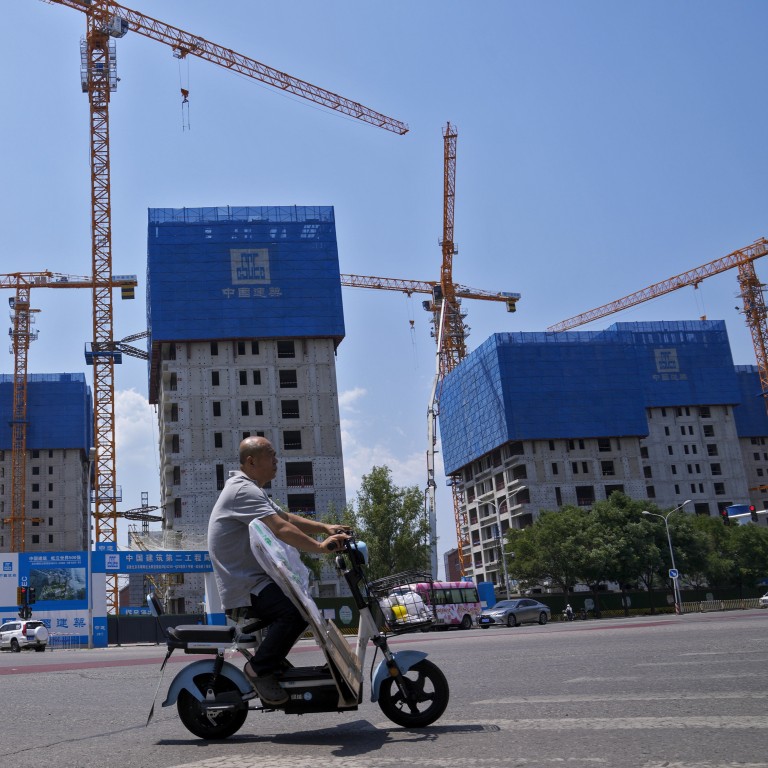
Chinese developer Sunshine 100 says it is assessing impact of liquidation order against controlling shareholder Joywise Holdings
- Joywise holds 64.77 per cent of Sunshine 100’s shares
- Sunshine 100 has defaulted on notes in 2021 and last year, and as of June last year, its total loans in both the yuan and US dollars amounted to 27.39 billion yuan
Embattled mainland Chinese property developer Sunshine 100 is evaluating the impact of a winding-up order for its controlling shareholder, whose beneficiaries include its chairman and executive director, according to a filing with the Hong Kong exchange.
Sunshine 100 said it had recently been informed of the winding-up order, issued by a Hong Kong court dated January 17, against Joywise Holdings, which holds 64.77 per cent of the developer’s shares.
The Beijing-based developer said it “is assessing the impact that the winding-up order against Joywise may have on the business operation and financial position of the company”.
“Shareholders of the company are reminded that the order is made against Joywise and not the company,” Sunshine 100 said.
Joywise is held by family trusts whose beneficiaries include Sunshine 100’s chairman and executive director, Yi Xiaodi, executive director Fan Xiaochong and non-executive director, Fan Xiaohua.
The winding-up petition was filed by Haitong International Securities with a Hong Kong court in August last year, after Joywise was unable to repay Haitong HK$386.8 million (US$49.45 million) by June. The loan was extended in 2019, with Joywise pledging 964.8 million shares of Sunshine 100 to Haitong, according to the developer’s filing in August.
China South City stock sinks 37% to record low after bond default warning
About 80 per cent of Sunshine 100’s projects are residential developments in second-tier Chinese cities such as Chengdu, Nanning and Wuhan. The developer first defaulted in 2021 when it was unable to meet the payment of Singapore-listed US$170 million notes as well as interest amounting to US$8.9 million.
The default was expected to trigger cross-defaults of other notes too, it said.
In October last year, Sunshine 100 said it was unable to pay US$120 million plus accrued interest of US$38.4 million on a note it issued in February 2021.
China property defaults won’t stop banks lending to troubled developers: Goldman
As of June last year, its total loans amounted to 27.39 billion yuan, dominated both in the yuan and US dollars, Sunshine 100 said in its latest financial report.
The developer’s losses widened by more than a quarter to 1.1 billion yuan from 837.8 million yuan, with revenue falling by 5 per cent to 1.13 billion yuan, in the six-month period ending in June last year.
Sunshine 100 made its initial public offering in 2014, with US private-equity firm Warburg Pincus as one of its largest backers.
China’s once-mighty developers face brutal years after end of ‘golden age’

